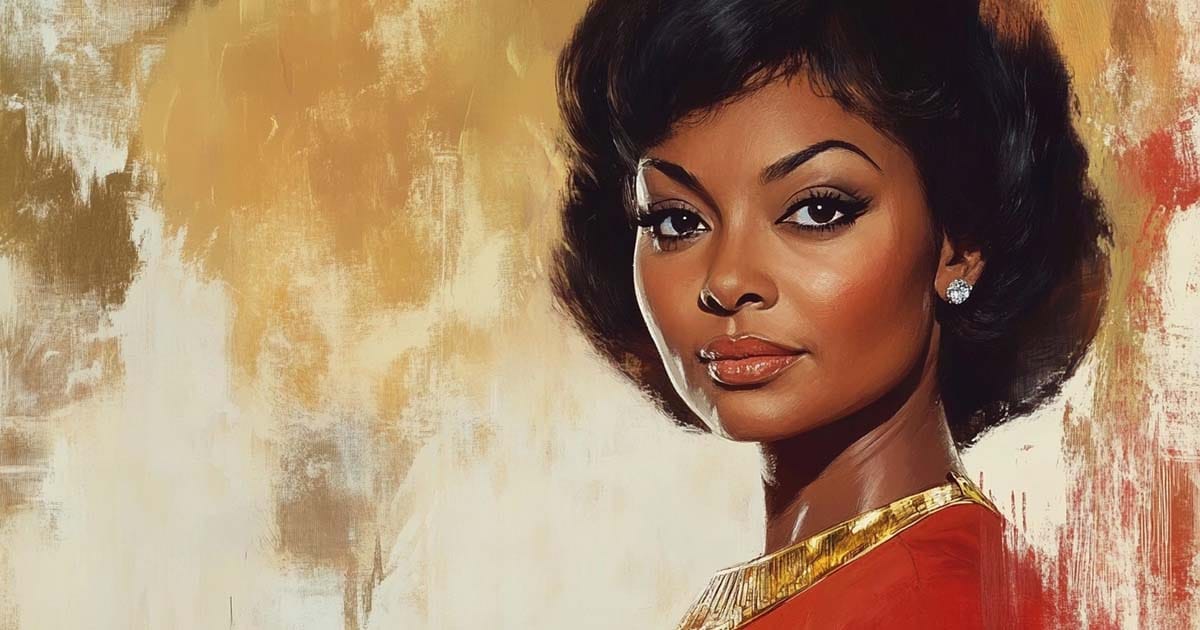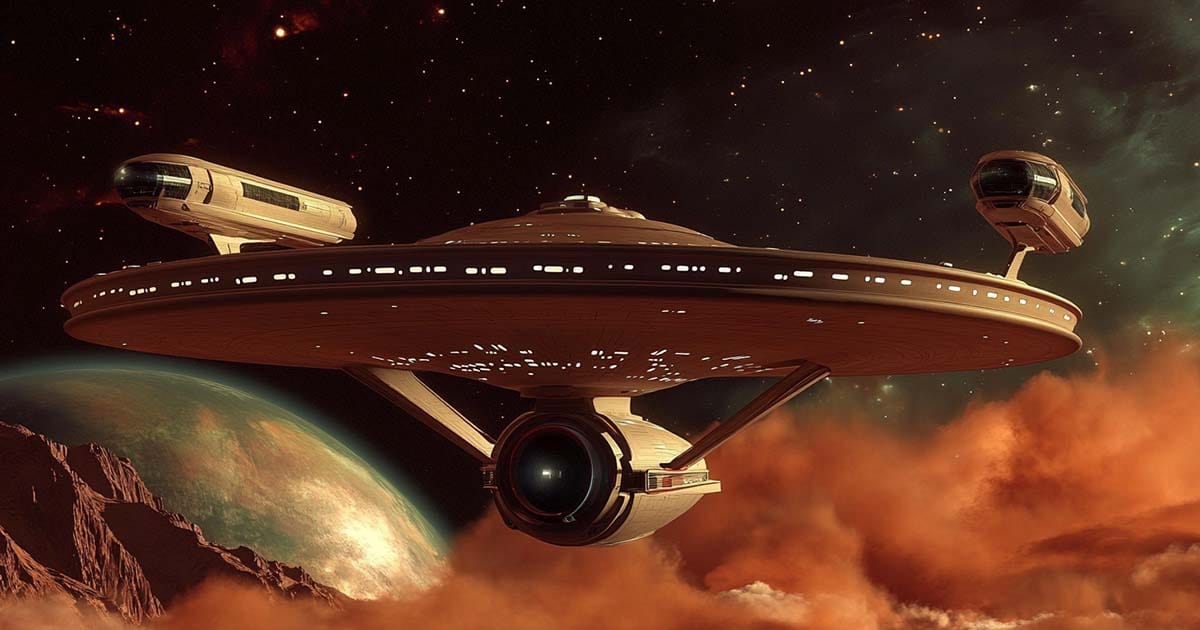Star Trek’s Vision of the Future: How TOS Imagined Tomorrow
Explore how "Star Trek: The Original Series" shaped technology, equality, and moral values in a hopeful 23rd-century future, inspiring generations of sci-fi fans and future innovators.

In the mid-1960s, "Star Trek: The Original Series" debuted on American television. It was an era marked by the Cold War, the race to land on the Moon, and struggles for civil rights. Yet, amid that backdrop of tension and conflict, creator Gene Roddenberry looked ahead.
Roddenberry introduced us to a future in which humanity not only survives but thrives. This article explores how the original "Star Trek" presented a brave, often optimistic vision of our tomorrow, one that still resonates with those of us who value tradition, faith, and unity.
The World of the 23rd Century
Technological Marvels. The crew of the USS Enterprise used devices that seemed downright magical in 1966. The transporter zipped individuals from ship to planet in seconds, while communicators let them talk across light-years.
These fictional tools pushed real-world innovators to dream big. Consider how early cell phones were often described as "Star Trek–like," or how today's tablets echo the Enterprise's data pads. There is more to these marvels than convenience. They reflect the power of human ingenuity, a gift that —viewed through a traditional lens— comes from a desire to better ourselves and care for our neighbors.
Starfleet and the Federation. Roddenberry placed humanity in a vast interstellar community under the banner of the United Federation of Planets. This was more than a science fiction government. It was a model of cooperation, depicting what could happen if Earth's nations worked as one.
Starfleet itself is both exploratory and defensive, interested in seeking knowledge yet mindful of its moral responsibilities. The Federation champions diplomacy, but it also wrestles with problems resembling colonial impulses.
Its guiding principle, the Prime Directive, urges us not to interfere in other cultures, reminding us that respect and humility are key when encountering the unknown.
Social Progress in the Future
Nichelle Nichols portrayed Lieutenant Uhura, who served on the Enterprise's bridge as a respected communication officer. Her role was a groundbreaking one for 1960s television. Her presence symbolized a future where people of all races and both sexes joined forces to explore the cosmos.

In a nation still grappling with racial tensions, viewers saw an image of cooperation grounded in dignity and respect.
Then there was Spock, half-human and half-Vulcan, whose journey highlighted our ability to conquer prejudice through empathy. Through Spock's logical mind and gentle spirit, "Star Trek" suggested that understanding and compassion rise above suspicion and fear.
Many episodes showed the Enterprise crew balancing diplomacy and strength. In "The Corbomite Maneuver," Captain Kirk used clever tactics to de-escalate a hostile standoff and transform an enemy into a friend.
"Star Trek" consistently explored themes of peace, especially in stories like "A Taste of Armageddon," which questioned the ethics of war by portraying a conflict with simulated casualties. Another episode, "Let That Be Your Last Battlefield," drove home the pointlessness of racial hate. These stories still speak volumes about the importance of loving our neighbors and finding nonviolent solutions to our disputes.
Challenges of Utopia
In spite of its shining optimism, "Star Trek: The Original Series" never claimed that the future would be trouble-free.
Episodes such as "A Piece of the Action" and "The Apple" showcase dilemmas involving the Prime Directive. When the crew encounters worlds that mirror Earth's gangster era or that follow a single controlling deity, they must decide whether to intervene. These plots hint at the big question, "Does one have an obligation to right a wrong, or does stepping in create more harm?"
Other episodes, like "The Ultimate Computer," examine artificial intelligence and the moral duty to respect new forms of life and consciousness.
At the heart of TOS lies the trio of Kirk, Spock, and McCoy, whose differing personalities highlight humanity's complexity. Kirk is driven by his pioneering spirit, Spock by pure reason, and McCoy by compassion. Their debates mirror the tensions between idealism and pragmatism.
"A Private Little War" takes a clear-eyed look at whether arming a weaker side is ever justifiable. Though the Federation aims for a peaceful galaxy, situations arise where courage is tested. Yet, the Enterprise crew's commitment to doing what is right —even when it is difficult —shines through. It echoes a time-honored belief that refining our souls sometimes involves conflict and sacrifice.
The Legacy of TOS's Future
Influence on Real-World Technology and Culture. From flip phones to medical scanners, many of today's innovations have been directly inspired by "Star Trek." NASA scientists have pointed to TOS as a reason they pursued space exploration. Over the years, the franchise's future-forward philosophy has also reinforced broader goals like equality and international cooperation. It showed that technical progress is best guided by moral principles. For many in the tech world, TOS is proof that science and faith in a brighter tomorrow can coexist.
TOS as a Blueprint for Future "Star Trek" Series. Viewers often point to "Star Trek: The Next Generation" and "Deep Space Nine" as continuations of themes first explored in TOS. They examine diplomacy, cultural exchange, and personal growth on an even larger canvas. Yet, the optimistic spark remains the same. TOS proved that a science fiction show could use far-flung adventures to comment on real-world issues, while honoring values like compassion, fairness, and resilience. It formed the bedrock upon which the entire "Star Trek" universe was built.

Star Trek's World of Tomorrow
"Star Trek: The Original Series" gave us a vision of tomorrow shaped by unity, curiosity, and a healthy dose of moral deliberation. This vision still guides many today, from scientists building the future to fans who find solace in the show's promise of better days ahead.
In uncertain times, TOS stands as a reminder that cooperation, empathy, and trust in our God-given potential can help us overcome even the toughest challenges. It calls each of us to keep reaching for the stars, because there is no telling how bright humanity's horizon can become when guided by faith and the will to do good.

